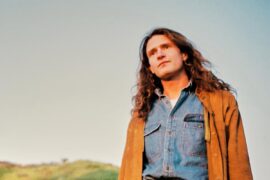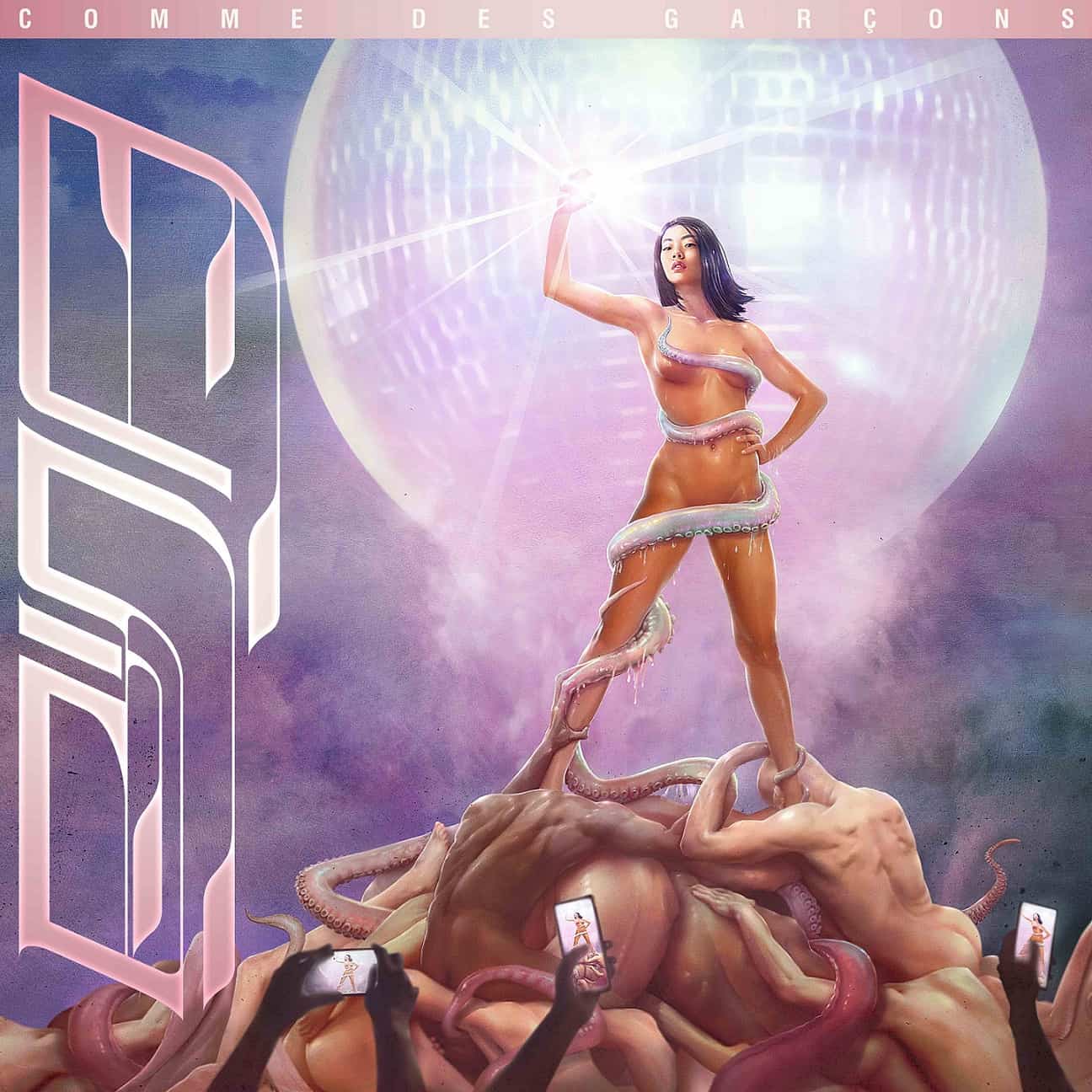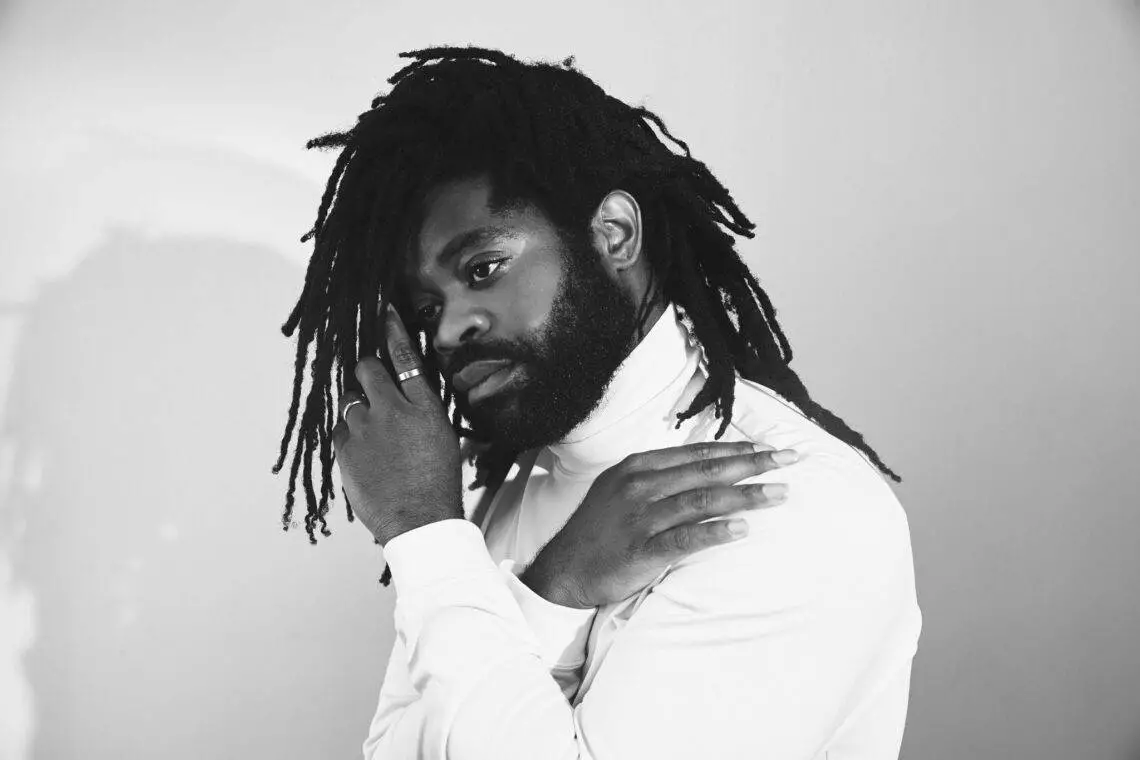LA-based indie soft rock artist Pigeon Club comes out with sophomore LP ‘Another Year in the Minors,’ and it is a true tender treat.
Stream: ‘Another Year in the Minors’ – Pigeon Club
I was always drawn to music with some perceived depth, lyrically or structurally.
Loss can come in a number of different ways.
The separation can be the result of an actual death or the demise of a meaningful relationship. Pigeon Club examines the nature of grief, along with other profound topics in his latest album, Another Year in the Minors. Together with a skilled group of friends and backing musicians, he has crafted something that allows listeners to deeply feel. In this pensive offering he explores sorrow, the passage of time and the undercurrents of relationships.
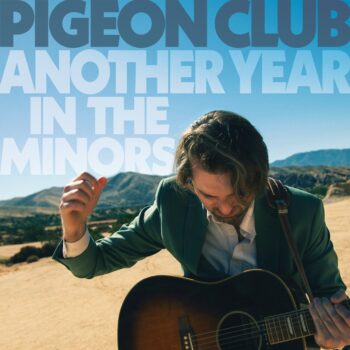
Wayne Whittaker, AKA Pigeon Club, is a Los Angeles-based multi-instrumentalist musician and songwriter. His music is known to be wholly moving and transformative while also laced in comicality. We are here for that unique blend of humor and heart. Another Year In The Minors emits the same infectious yet emotionally stirring character.
Another Year In The Minors opens with the witty and utterly real release “Liar.” The warm track details using deceit as a way of coping. Most of us are familiar with that idea, making you resonate strongly with the song. The title track is another record home run; the piece is ruminative and raw. The melancholic work draws you in with its steady beat and candid lyrics of disappointment. Life is not always happily ever after as you ride into the sunset, and this track perfectly illustrates that sentiment. The album concludes with “Ancient History.” The closer touches on loss and we are gripped by this haunting tale of time whooshing by. Unlike the message of the track, Pigeon Club’s musical career will not be short-lived. His vast talent is a testament to that.
Atwood Magazine had the pleasure of interviewing Pigeon Club’s Wayne Whittaker, talking loss, his name’s conception, his new album, and so much more: Read our conversation below, and listen to Another Year In The Minors, out now!
:: stream/purchase Another Year in the Minors here ::
:: connect with Pigeon Club here ::
“Another Year in the Minors” – Pigeon Club
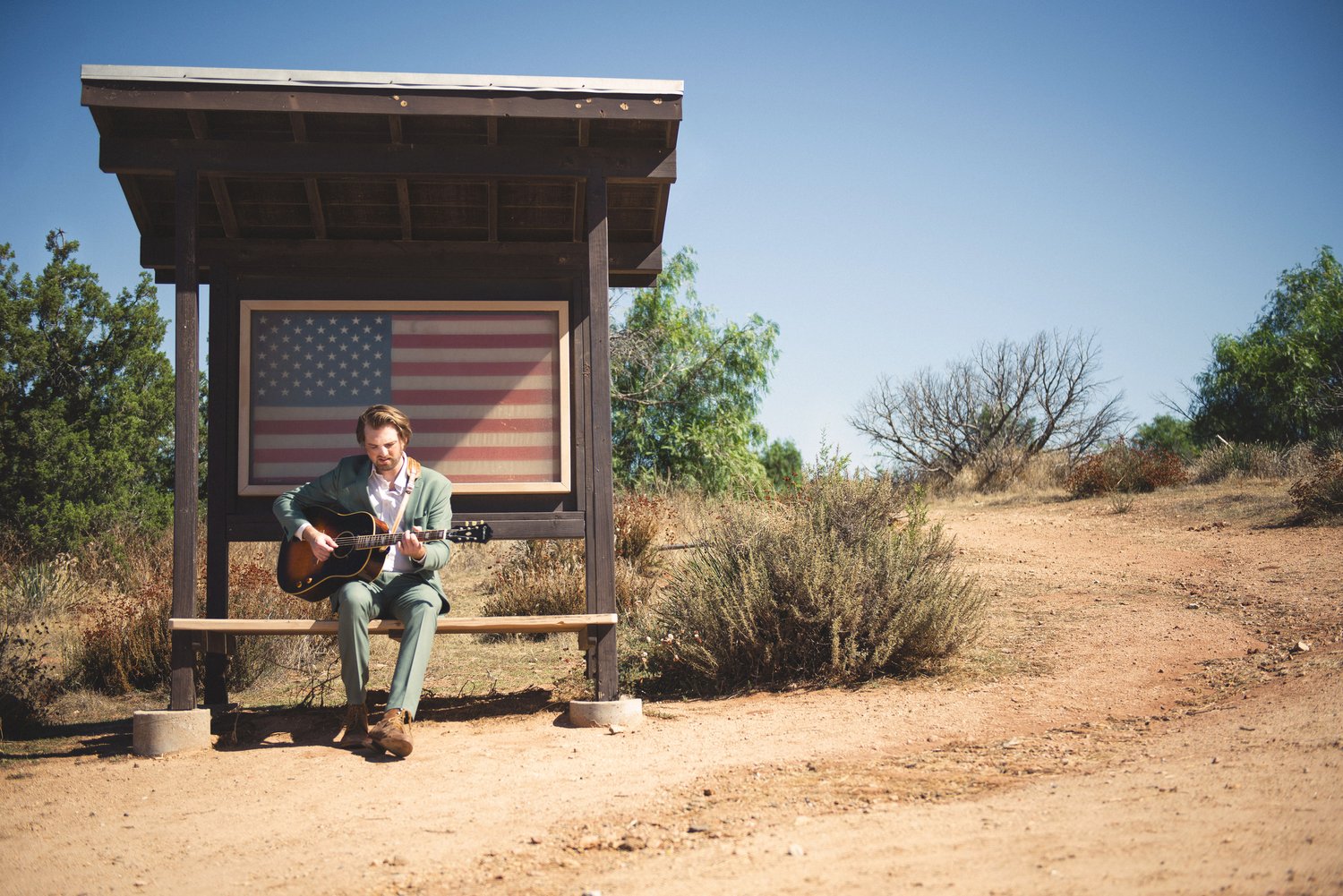
A CONVERSATION WITH PIGEON CLUB

Atwood Magazine: I love the name Pigeon Club. How did you come up with that unique artist name?
Wayne Whittaker: The pigeon club is a real place! There are a lot of them, actually. But the one I’m referring to specifically is in Pawtucket, RI. My dad bred, raised and raced homing pigeons for like 55 years. It’s a pretty niche hobby, but there is a community of flyers and the pigeon club is where they would congregate. It’s changed from when I was growing up, but it used to be a pretty happening scene believe it or not. It was my introduction to dive-bars. Some of my earliest memories are of sipping on Sprite in a smoked filled bar, watching football on a grainy TV and having a bunch of leather-handed senior citizens in baseball hats ruffle my hair and call me “junior.”
You have a distinct soothing folk/rock sound. How was your musical sonic developed?
Wayne Whittaker: I’ve always been drawn to wimpy music. The hard stuff never did it for me, I simply don’t have an appetite for destruction. I used to joke that when I got really mad I’d listen to James Taylor’s Greatest Hits Volume 2. I was an anxious, introspective kid who was sort of missing the adolescent rage most of my peers seemed to experience. That’s not to imply that I was mature for my age, I’m still not. But I was always drawn to music with some perceived depth, lyrically or structurally.
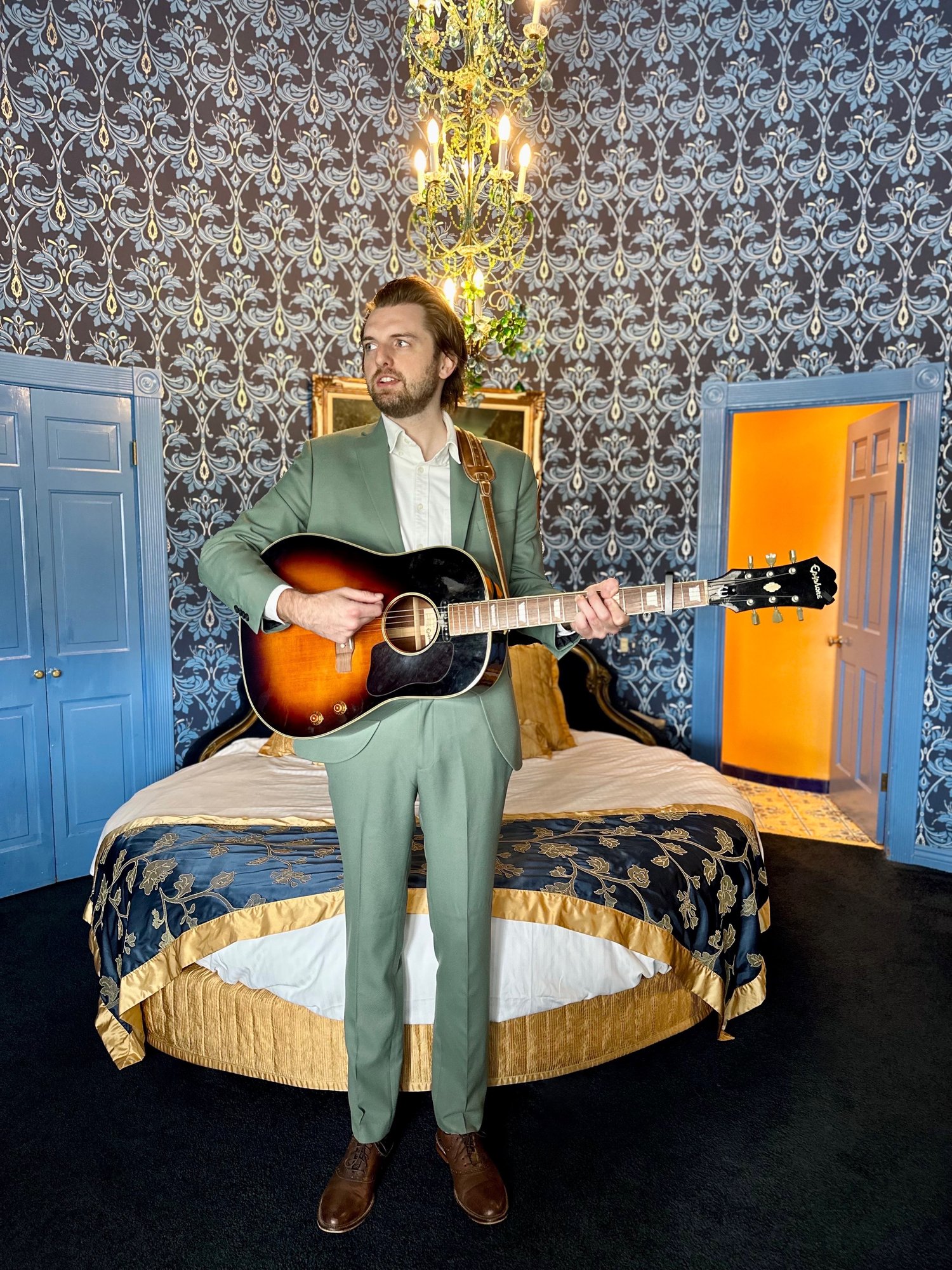
Your album Another Year In The Minors deals with subjects like the passage of time, navigating relationships and dealing with grief. What inspired this highly reflective release?
Wayne Whittaker: This turned out to be a breakup record, and it was a doozy. The big kind of breakup where you have to sign documents. Life is changing. The last couple of years have been pretty trying. My grandmother passed away in January, and early last year I lost my high school best friend and first songwriting partner, Pat.
The captivating body of work opens with “Liar,” a wistful indie rock track. The tongue-in-cheek piece explores what it is like to put up a façade as a type of defense mechanism. Can you explain how the song came to life?
Wayne Whittaker: Well unfortunately I don’t know how tongue-in-cheek it is. I think almost all of us are guilty of lying to protect ourselves, or preserve an image, or to shield us from recognizing or admitting something that we’d rather not admit to ourselves, let alone other people. I’ve introduced this song live by saying “this is a song about how nice of a guy I am.”
In “Give a Shit” there is a powerful line “You wince when you smile like there’s a pain you can’t conceal. You are asking yourself, “when will I feel how I should feel?” I think this lyric can resonate with so many as oftentimes we try to act happy when we are anything but. Can you explain this track in more detail?
Wayne Whittaker: This was the hardest song I’ve ever written. It took me two years to finish it, because if I let myself say what I wanted to say lyrically, it meant having to confront some things I really would’ve rather not have confronted about myself and about the relationship I was in at the time. It almost didn’t feel worth it – to expose yourself and put it down on paper for the benefit of some imaginary audience. But ultimately it was therapeutic, like music has always been.
The album comes to a close with “Ancient History” which examines life and loss as time races by. What moved you to write this emotive offering?
Wayne Whittaker: I think about death a lot, which runs in the family, and I’ve been really unnerved by the quickening pace of life the older I’ve gotten. Like I mentioned my grandmother passed away at the age of 96 in January of this year, but she had been slowly fading for a year or so. I started writing this song about her, and then it sat around unfinished for a while. I wasn’t pushed to finish it until the death of my high school best friend Pat. We’d been out of touch for quite some time but he was one of those life-changers.
The nine-track collection is a collaboration with Grammy winning co-producers John Would (Fiona Apple, Warren Zevon) and Amy Wood (Fiona Apple, The Donnies The Amys). What was it like working with such prominent talents?
Wayne Whittaker: I’m lucky in that John and Amy are two of my best friends, and I’ve worked with them on different projects for a number of years now. They’ve always been incredibly supportive of my music. John has this knack for finding song-solidifying riffs, and for stripping parts down to where they’ll be most effective. Amy is a steady captain, and she’s fully invested in getting each song to sit exactly where it’s supposed to. Her feel is unreal, it’s like playing with Jim Keltner and Pete Thomas combined. I’m thankful to have them on my music, and in my life.
You are a multi-instrumentalist musician and songwriter. How did you first discover your love for music?
Wayne Whittaker: Music was always around growing up. I loved my parents’ record collection. Growing up in the ‘90s, I loved pop radio. But I didn’t start playing an instrument until the summer before high school, when I bought an acoustic guitar. While trying to wrangle that Ibanez into submission, I started honing in on the bass parts to songs, which was something my dad noticed – and my folks surprised me with a bass for Christmas that year. That was all it took, I was all–in after that.
I understand you have worked with artists like Dawes, Diane Coffee, and Haerts. What was that experience like?
Wayne Whittaker: I love playing with other artists. I primarily consider myself to be a bass player. Pigeon Club is truly a vehicle for self-expression, but I think I’m a way better bass player than I am a songwriter. The gun-for-hire industry runs almost entirely on word of mouth. If you need a good electrician, you ask people you trust for recommendations. It’s the same thing for bass players.
I went to college with Nini and Ben from Haerts and have been playing with them for 9 or 10 years at this point. I met Shaun from Diane Coffee around that same time period, and we reconnected just in time for a tour of their last album, With People. That tour ended up being sabotaged by covid. And yeah most recently I filled in on bass for a couple of gigs with Dawes as they were transitioning from their long time bass guy Wylie Gelber. It was a great experience, and I made some new friends in the process.

Finally, are there any artists or bands on your current playlist you can recommend to our readers?
Wayne Whittaker: Keeping it in the family here, Amy released her record The Heartening a few months ago and it’s really special. I was honored when she asked me to play bass on a couple tracks, and now I get to tell people I’m on a song with Fiona Apple.
Jeni Magana is featured on a few songs on my new record (she also took the photo on the cover), and has a fantastic new record of her own out called Teeth. I really love these tunes.
Watching Ben Alleman track piano and organ on my songs was a personal highlight of making this new record, and he’s got a beautiful new instrumental album out called A Study In Unknowing.
I was fortunate enough to play a bunch of bass on Photocomfort’s newest album, Patron Saint. I love Justine and I think this album is really unique.
Keep an eye out for new music from Tyler Ballgame and Sam Small too, they’re both good friends and great artists I work with and I’m super excited about the sounds we’re making.
Also Two Star & The Dream Police by Mk.gee is the album of the year.
— —
:: stream/purchase Another Year in the Minors here ::
:: connect with Pigeon Club here ::
— — — —

Connect to Pigeon Club on
Facebook, TikTok, Instagram
Discover new music on Atwood Magazine
© Magana
Another Year in the Minors
an album by Pigeon Club

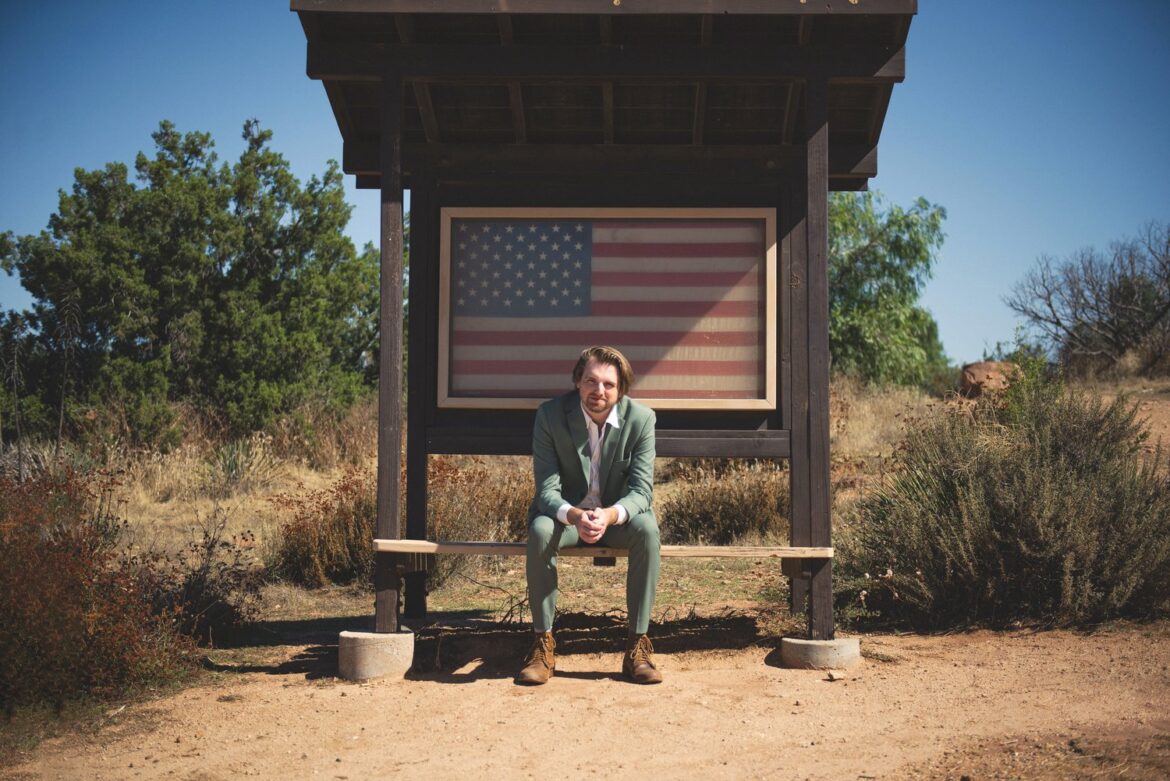
 ©
© 
